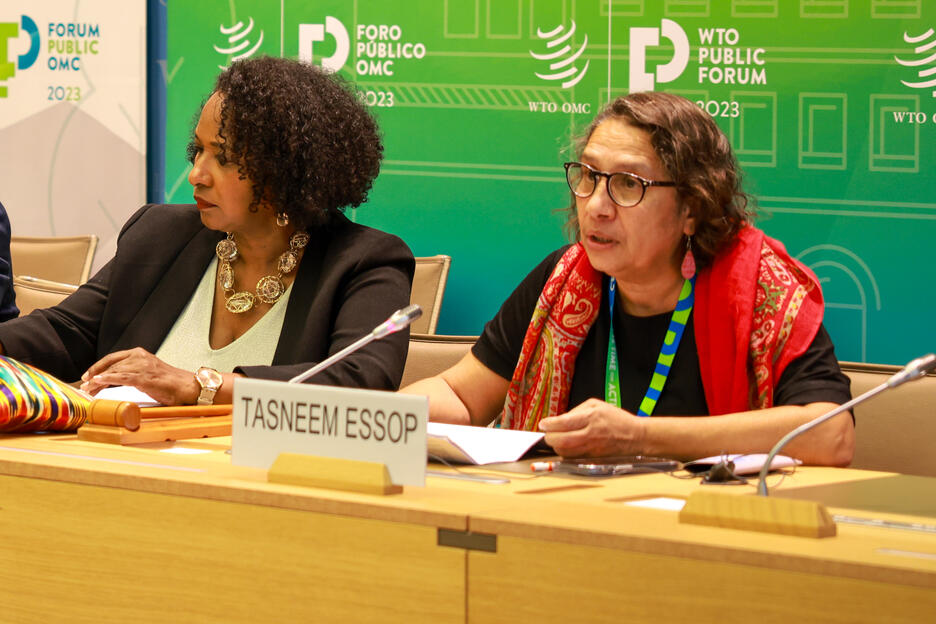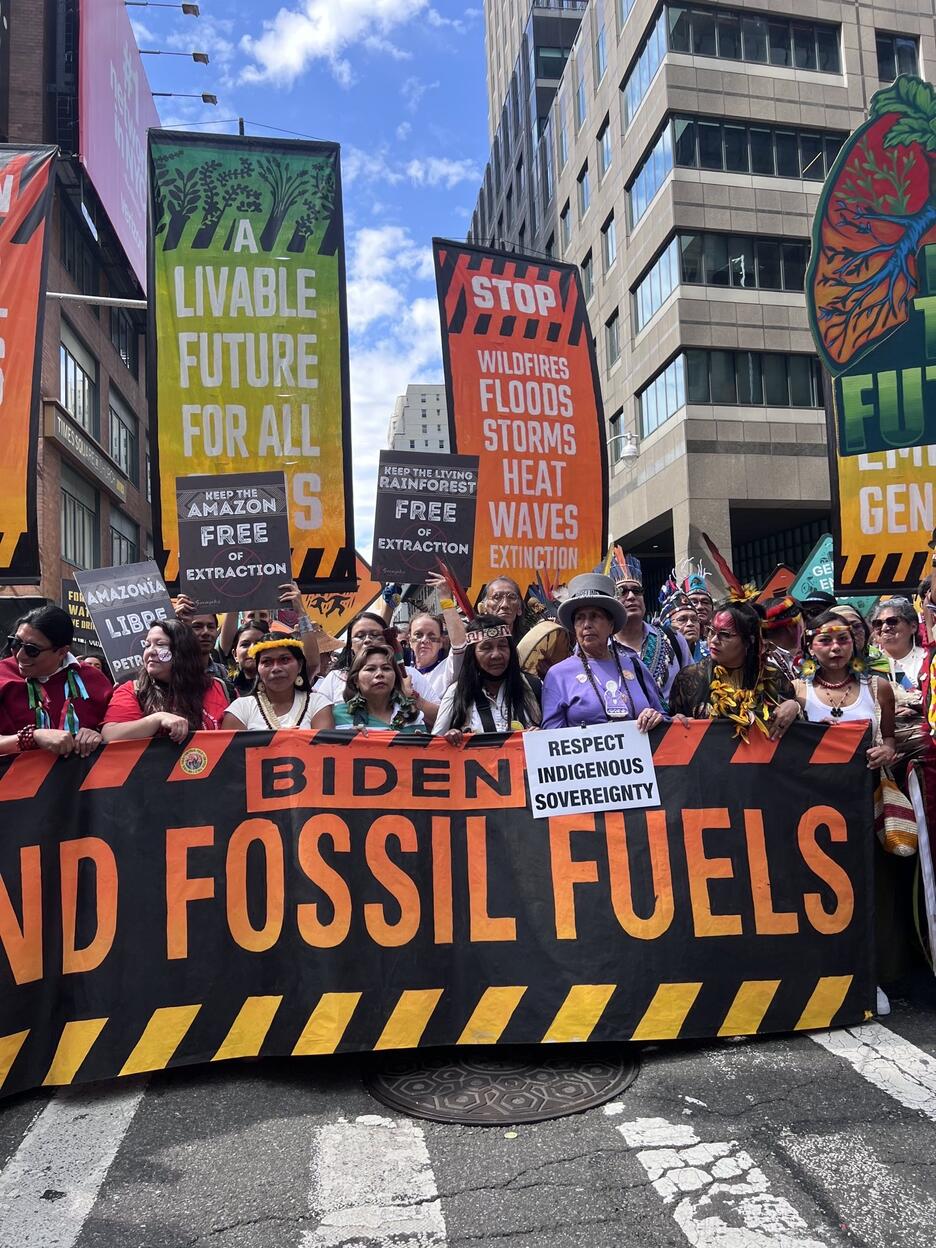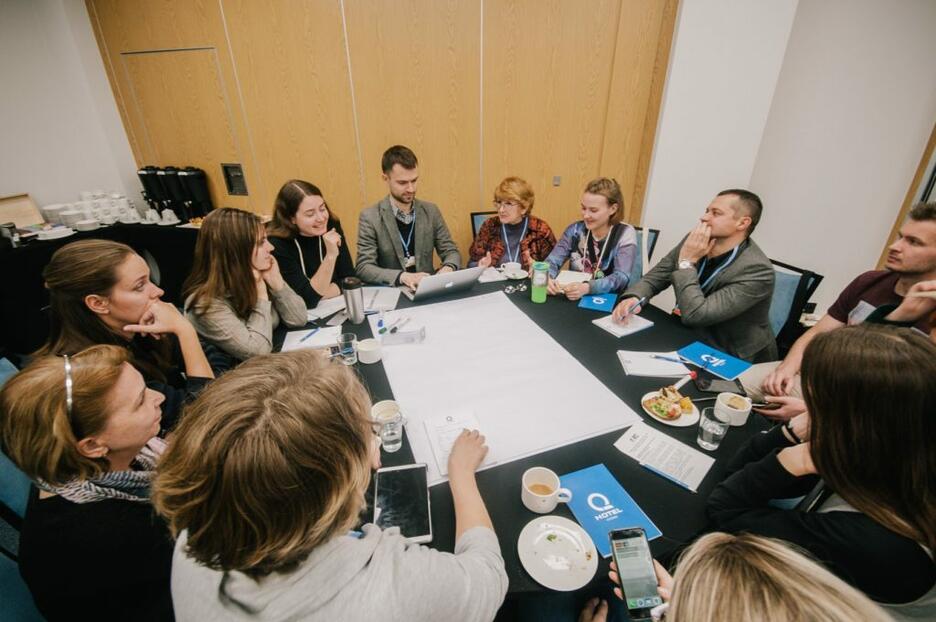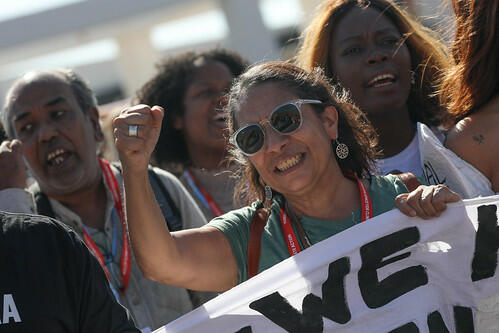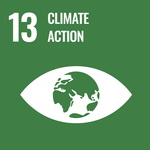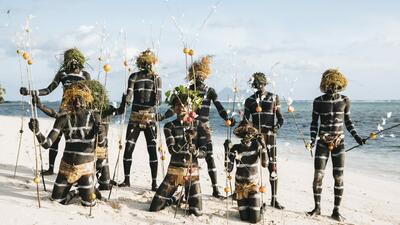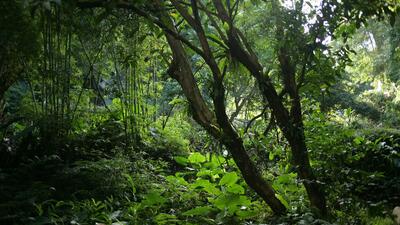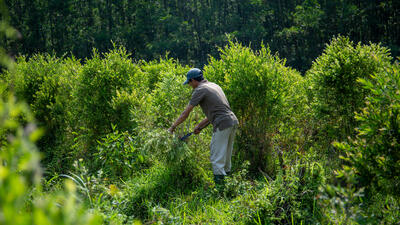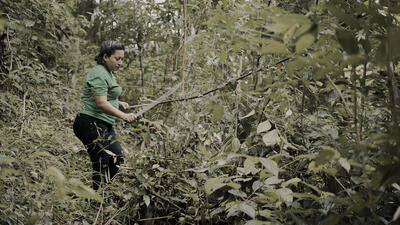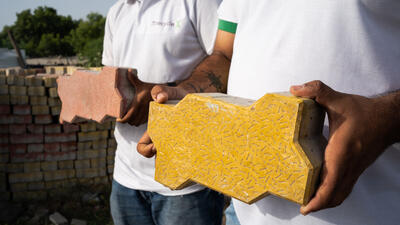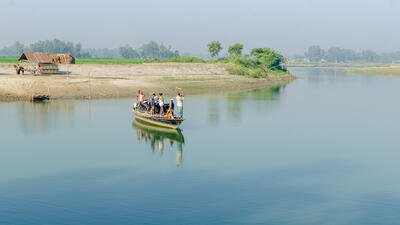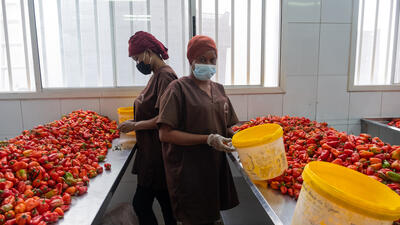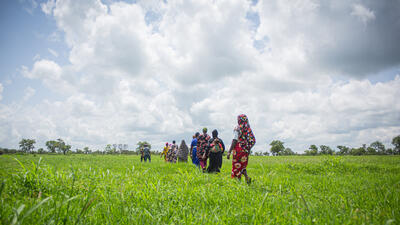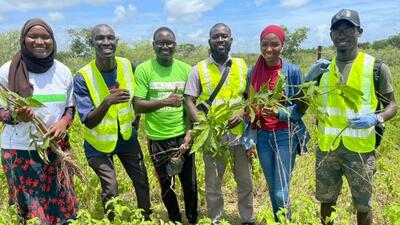
Climate Change: The JUSTice in a global transition
Evelyn Seltier of Trade Forum talked with Tasneem Essop about the “just” in the “just transition” and what this really means for vulnerable communities in countries that are affected the most by climate change.
Tasneem is the Executive Director of Climate Action Network – International, which represents civil society in all climate negotiations, and includes over 1,300 environmental non-governmental organizations in over 130 countries that promote government and individual action to limit human-induced climate change to ecologically sustainable levels.
The interview has been edited and condensed for clarity.
The just transition originated in the labour movement, during a time of massive disruption. Its mechanisms were meant to protect workers in times of crises.
Today, it is still very much about protecting those most vulnerable, whether that is in times of war or what is now the massive global disruption caused by climate change. With the impact of climate change reaching far, it expands beyond workers to other sectors of the society, to vulnerable communities—who are already vulnerable due to their socio-economic conditions.
With climate change there is an additional exacerbation of their existing conditions as measures are being taken to reduce CO2 emissions.
For instance, in the energy sector, jobs that people depend on would disappear. We know that transitions are inevitable, they are already happening. The justice element that comes with a just transition is about the most vulnerable, as they are the ones who feel the burden the most, even though they are the least responsible for the climate crises—which itself is a fundamental injustice.
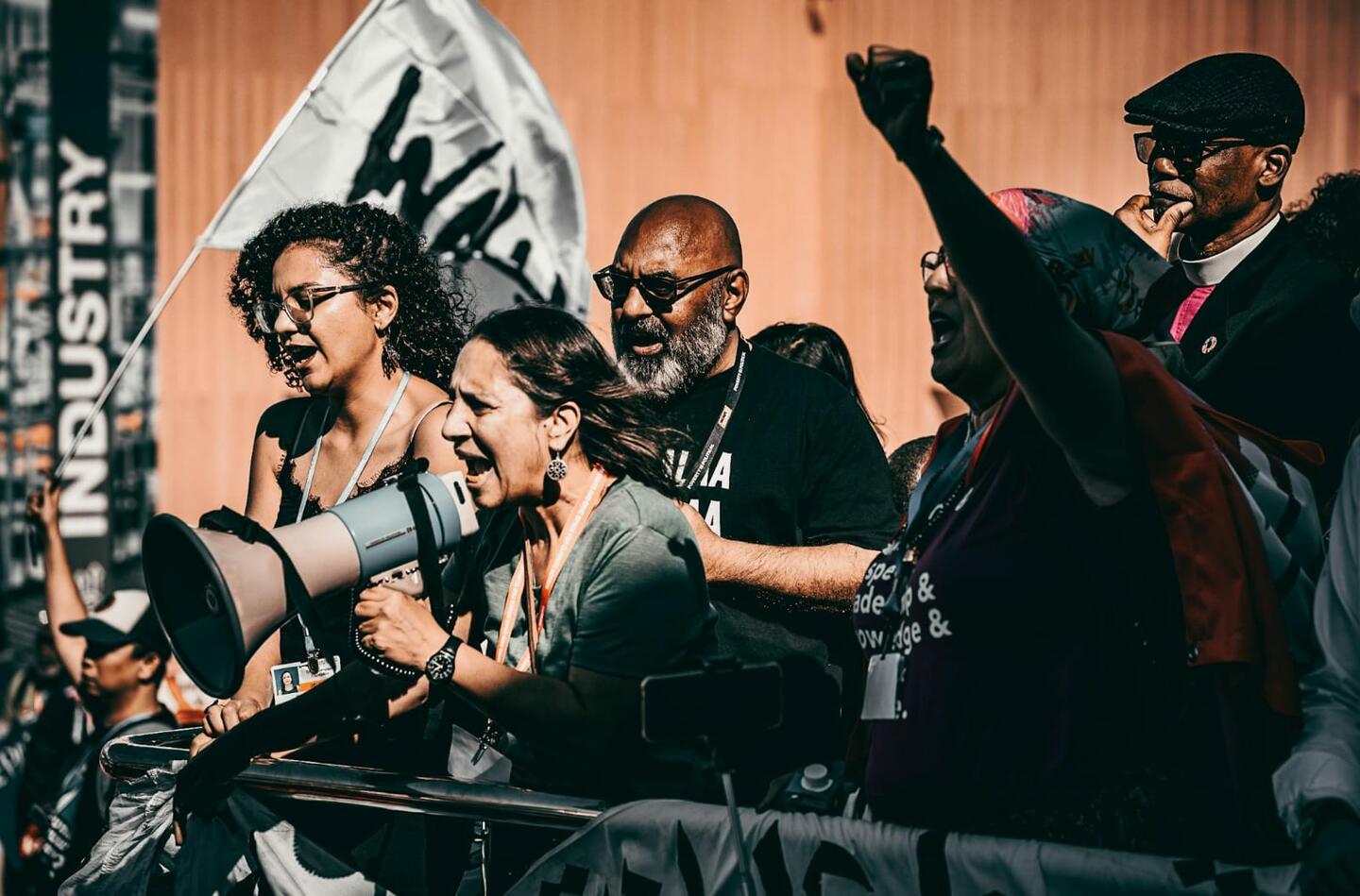
Our first big move has been to reclaim the concept of the just transition so we can keep the focus on the justice aspect. We developed a framework– with guidelines that help us understand if the just transition meets the needs of justice.
We also started setting up a global platform for civil society and communities. To address the climate crisis, you need civil society and communities as key partners in just transition processes, whether you are discussing it at the global or national level.
This is why we set up the platform, to share best practices. We define what a just process would look like in terms of procedural and process justice, and we do this together with other partners. For instance, we are currently involved in a big consortium that is working on the ground in the coal regions of Indonesia and Colombia.
Small businesses are going to be hugely vulnerable, especially in developing and even emerging economies. Unfortunately, at the opening panel of the WTO Public Forum that I attended yesterday, I had the feeling that there is a sense that dealing with climate is going to be linear in nature, that we have all this time to plan, and that this is about adjusting and greening the trade system.
But the climate crisis is hugely disruptive. When we deal with the impact on small businesses, you need to understand this disruption.
First, the effects are global—we see it happen everywhere. How do we talk about protecting the interest of small businesses in terms of trade in the context of massive disruptions to systems? If we look at Libya’s flooding—how do you talk to and about small businesses in that extremely devastating context? We must be very clear on planning for the disruption through climate impacts when we discuss the interests and needs of small business.
The second big disruption will be driven by what we do to address the climate crisis. Mitigation measures are going to cut across all sectors. Global trade for instance is dependent on access to markets, which depends on the transport sector, i.e., aviation and shipping. These two sectors also drive massive emissions in the atmosphere, and they are currently amid negotiating how to reduce their emissions. So what does the future global transport sector look like? If they are forced to reduce their emissions, this will have an impact on trade.
These disruptions to our economies and societies are moving at such a fast pace that we need to be honest that the just transition is not only about opportunities.
Recognizing this, we need to minimize as much as possible the risks and impact on the most vulnerable, which include small and medium-sized enterprises. Finally, through these honest conversations we should identify where we want to transition to.
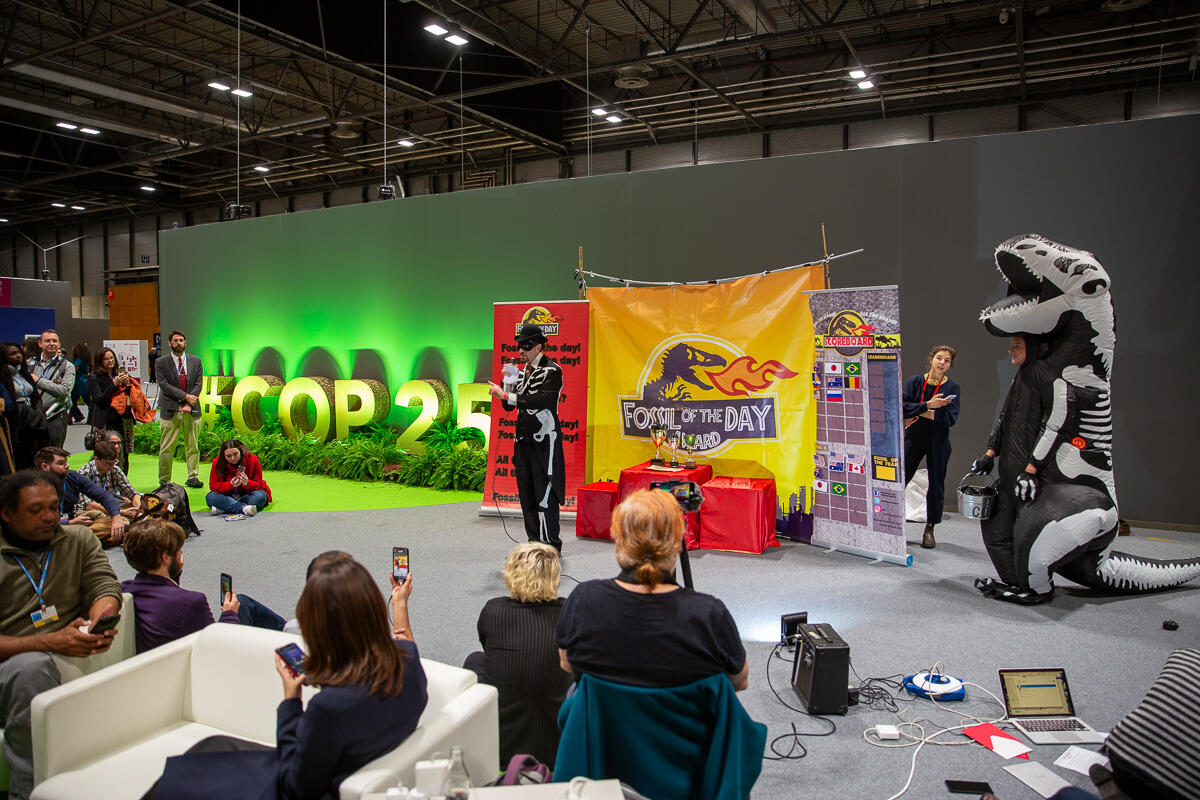
Our Network used to be very Northern led, focusing on policies, technical work, and [climate change] mitigation. Naturally, we have evolved over time and strongly built in the views from the Global South, where the impact of climate change is felt the most. Only through combining our interests with that of developing countries can we put our full weight and power behind issues that need to be dealt with now.
Loss and damage, for instance, came up strongly when COVID was hitting the same vulnerable sections of society. That same year we had massive climate impacts. Millions were suffering. We couldn’t ignore loss and damage any longer. We decided to make this an agenda item at COP26 in Glasgow. At COP27 we finally won our fight and secured an agreement to have a fund for loss and damage.
This year our focus is on the fossil fuel industry. Through the Global fight to end fossil fuels, 600+ actions are organized throughout this September across the world. We simply cannot be comfortable with incrementalism any longer, not when we talk about justice for those who did not cause this crisis.
It will be challenging but I am eternal optimist, and we will fight on all fronts. Even if we don’t get the outcome now, we will continue to fight, just like we did after Glasgow. And the growing impatience of people will back us, just as, unfortunately, the current disasters that hit millions around the world.
People need to wake up and realize that this is not exclusively an environmental crisis we are talking about—it is so much more than that and goes beyond society, economics, and human rights.
What’s more, we are facing fragmentation. You cannot have a conversation about the just transition if the ILO is not in the room. You cannot talk about climate change if the United Nations Framework Convention on Climate Change (UNFCCC) and especially the Intergovernmental Panel on Climate Change (IPCC) is not in the room.
These institutions and conversations need to be connected to have ONE conversation. Scientists need to explain, and governments need to understand it. Be in the same room, recognize that this is a crisis, that this is an emergency, and have the conversation with the people who suffer.




